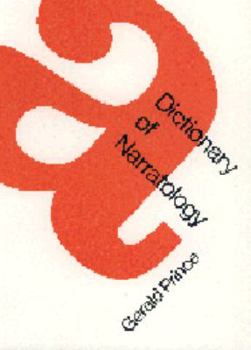A Dictionary of Narratology (Revised Edition)
Select Format
Select Condition 
Book Overview
History, literature, religion, myth, film, psychology, theory, and daily conversation all rely heavily upon narrative. So it is hardly surprising that studies of the art of narrative abound. Narrative has a language much its own, with regularly recurring patterns, deeply established conventions for transmission, and interpretive codes, whether in a novel, cartoon, or case study. Cutting across many disciplines, narratology describes and analyzes this language, and only recently have serious attempts been made to regularize it to permit one expert to understand another. In A Dictionary of Narratology , Gerald Prince provides quick and reliable access to terms and concepts that are defined, illustrated, and cross-referenced. All entries are keyed to articles or books in which the terms originate or are exemplified. Important as the first book of its kind, A Dictionary of Narratology should prove indispensable to writers, critics, and scholars in many fields.
Format:Paperback
Language:English
ISBN:0803287143
ISBN13:9780803287143
Release Date:January 1989
Publisher:University of Nebraska Press
Length:118 Pages
Weight:0.46 lbs.
Dimensions:0.4" x 6.0" x 8.2"
Customer Reviews
1 rating
for the sake of Clarity and Conciseness
Published by Thriftbooks.com User , 25 years ago
This is a highly useful dictionary. Although its entries total to just over 100 pages, it is remarkably complete. Prince offers short, to the point explanations of terms that in other dictionaries are notoriously fuzzy explained. Moreover, he provides a very helpful set of crossreferences that goes with each entry, thus enabling the reader to find out more. Among the outstanding explanations is the description of point-of-view, in which Prince sets forth the proposals of Friedman, Genette and Stanzel complete in just two pages. Useful bibliographical references substitute for the fact that Prince could not adress every controversial discussion in full. Everyone interested in literary theory should own a copy, even if the work was not updated to take aboard recent developments.






